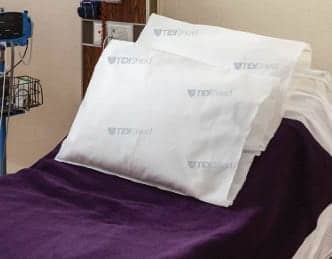Mesoblast Limited, Melbourne, Australia, a regenerative medicine company, says preclinical trial results show its proprietary adult stem cells regenerated and regrew damaged knee cartilage in postmenopausal osteoarthritis.
One injection of Mesoblast’s allogeneic adult stem cells into the arthritic knees of postmenopausal ewes with well established osteoarthritis 3 months after initial joint damage resulted in sustained, progressive regeneration and regrowth of knee cartilage for at least 6 months, the company says. The results indicate the stem cell product may be effective for treatment of postmenopausal knee osteoarthritis.
In 18 postmenopausal ewes, osteoarthritis developed following bilateral removal of the knee meniscus cartilage. Three months later, one group of six was examined to document the extent of osteoarthritis prior to treatment, and the other two groups received hyaluronic acid alone in one knee and hyaluronic acid plus the company’s allogen-eic cells in the other knee. One of these groups was then followed for 3 months, and the other group for 6 months.
Prior to receiving any treatment, 3 months after removal of the knee meniscus the knee joints showed extensive osteoarthritis as shown by severe erosions and loss of cartilage. Six months after a single injection, osteoarthritic knees that received the allogeneic cells had as a 20 to 25% thicker and greater area of cartilage lining the damaged joint than knees that received an injection of hyaluronic acid alone (both parameters p<0.05).
The progressive, sustained, and significant regeneration of cartilage was measured at 3 and 6 months in cell-injected knees relative to baseline. The cartilage was rich in proteoglycan, the natural constituent of joint lining cartilage, indicating the regenerative process had induced normal, functional knee cartilage. No significant improvement over baseline was seen with a single injection of hyaluronic acid at either 3 or 6 months.
The degenerative condition of cartilage loss affects more than 10 million people nationwide, and some 40% of aging women suffer from postmenopausal knee osteoarthritis, the company says, making it the leading cause of joint pain and disability among the elderly.
Funding is set for the initial Phase 2 clinical trial.




